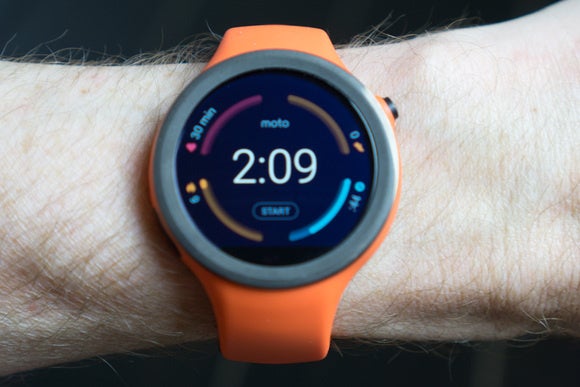The companies behind some of the top Android ar watches are heading for the bench.
, Huawei, Motorola aren’t planning a new smartwatch in the final months of the year, according to a CNET report. This decision is driven by a sense among the companies that wearables have yet to become the hot item they were once thought to be. The enthusiasm just doesn’t match what we see for smartphones, which still drive many buyers to an annual upgrade cycle. th the holiday season approaching, it appears they’re going into the season with the lineup they have.
It’s not just Android ar that’s hitting the doldrums. An IDC analyst said that Apple saw Apple tch shipments fall 55 percent from a year ago into the second quarter.
“Smartwatches still have yet to make a significant impression on consumers as a must-have device,” said Ramon amas, an analyst at IDC, told CNET.

The Moto 360 Sport was Motorola’s attempt to woo buyers who wanted a watch focused on fitness health needs.
Apple just released the Apple tch Series 2 a refreshed Series 1, retooling to focus to health fitness. Samsung, meanwhile, will release the Gear S3, which runs its own Tizen software, later in the year. On the Android ar front, it appears that is sticking with its tch Urbane Second ition E as the flagship for the remainder of the year. Motorola’s current second-generation Moto 360 was released last October, so the company may go beyond a year before offering a new model.
Instead of new hardware, the most compelling change to the smartwatch experience will be with Android ar 2.0. The update should hit the vast majority of watches out there (not the first-generation Moto 360, unfortunately), so if you have one you’ll be able to get a refreshed experience without the need to splurge for new hardware.
The impact on you: If you’ve yet to dip into the Android ar waters, this momentary pause by some of the hardware companies may mean deals for you as current watches are likely to dip in price as they age. Given that Apple is targeting fitness more directly, I’d expect this same type of focus to emerge on the Android ar side, as most of us want a smartwatch to offer fitness tracking bits of data instead of trying to take over for our smartphone.
















